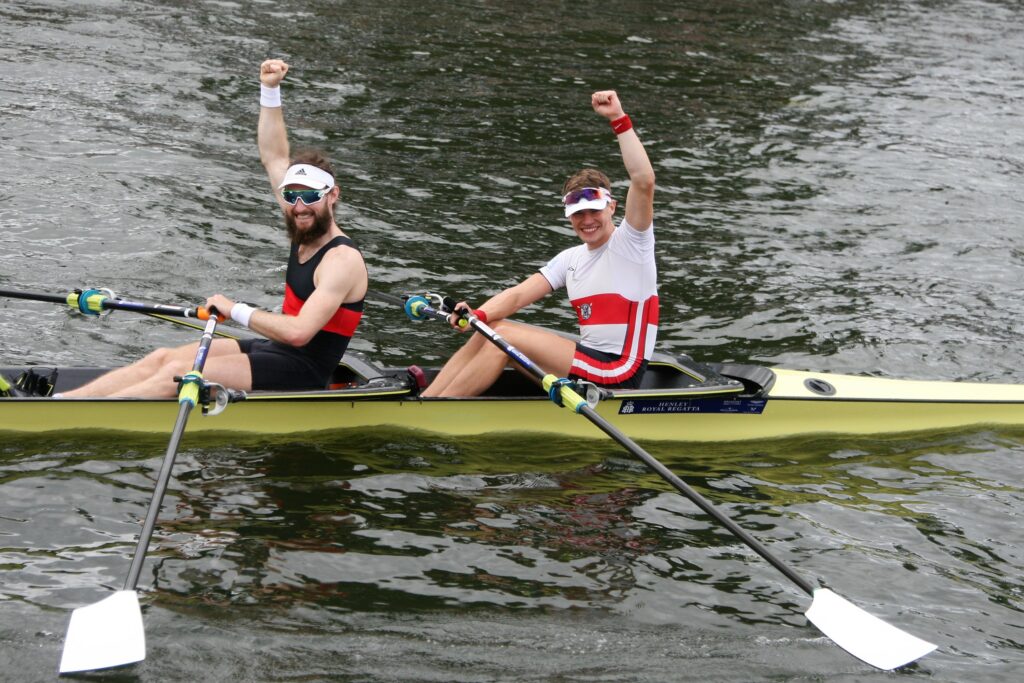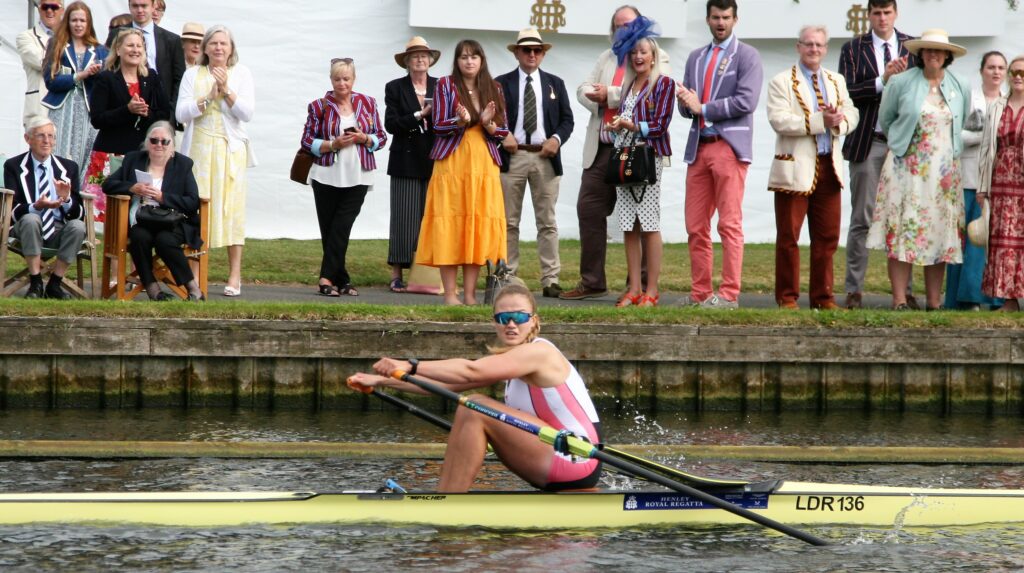
18 Aug 2021
Return to live racing for the Henley Royal Regatta
This year’s Henley Royal Regatta in Great Britain saw several returning Olympians and, despite covid-19 constraints, a number of overseas entries to add spice to the competition.
After last year’s event was cancelled, because of the pandemic, there was renewed domestic interest in the regatta, on and off the water, with three new events for women bringing the total up to 26 – the highest number since the regatta was founded in 1839.
The final of the men’s Double Sculls Challenge Cup provided a classic lightweight-heavyweight battle between Ireland’s Paul O’Donovan and Fintan McCarthy, and Matt Haywood and Sam Meijer of Great Britain. The Irish double arrived in Henley straight off the back of their gold medal in Tokyo two weeks previously and their high rating and gutsy power proved decisive against Haywood and Meijer. Both Haywood and Meijer raced on the British team this season with Haywood going to the Final Olympic Qualification Regatta.

The British Olympic contingent was represented by Jack Beaumont, Tom Barras and Harry Leask in the Queen Mother Challenge Cup for men’s quads. The Tokyo silver medallists boated clubmate Rory Harris in place of the absent Angus Groom. In the final the British crew had tussle on their hands against another Irish crew. Ireland boated their heavyweight Olympic double, Phil Doyle and Ronan O’Byrne, together with single sculler Daire Lynch and Rio lightweight medallist Gary O’Donovan The British quad was triumphant in the two-boat final, winning by 1 ½ lengths.
In the Stonor Challenge Trophy for women’s doubles, British Olympic lightweight double of Emily Craig and Imogen Grant were pushed hard by former junior and under-23 world champions Jess Leyden and Georgie Brayshaw. The Olympic lightweights came out on top by just ¾ length.
Another returning British Olympian, Graeme Thomas, fresh from finishing fourth in the men’s double Tokyo final with John Collins, won the Diamond Challenge Sculls for men’s singles against former under-23 world champion Seb Devereux. And when Lola Anderson won the equivalent women’s event, the Princess Royal Challenge Cup, later in the day it was the first time the event had been won by a British sculler since Debbie Flood took the title in 2000.

In the Silver Goblets event for men’s pairs Matthew Tarrant and Morgan Bolding made up for the disappointment of missing selection for Tokyo, where they were the British spares, by cruising home to a comfortable win over the 2112m course.
There were no overseas entries in the Grand Challenge Cup for men’s eights, but this gave Oxford Brookes University the chance to take the trophy for the first time in their history. Brookes athletes won a total of six trophies at the regatta, including the Ladies’ Challenge Plate, the intermediate event for men’s eights and the Island Challenge Cup, the new event for student women’s eights.
Both the Netherlands and Germany shared in the silverware at the end of the regatta when the Dutch students from Nereus beat Imperial College, London, to take the Temple Challenge Cup for student men’s eights, while Germany’s Frankfurt Germania proved victorious in the club fours against Hinksey Sculling School.
Copy thanks to Robert Treharne Jones

